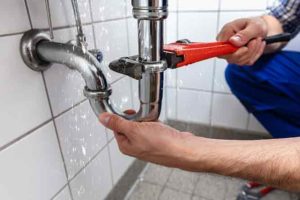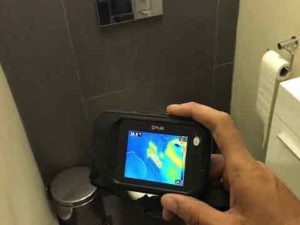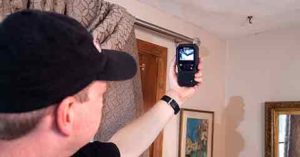
Every single year, at least 8.1 out of every 10 homes will suffer some form of a plumbing leak. These leaks have a wide variety of causes aging pipes/connections, corrosion, severe water hammer, high water pressure, clogged pipes, rapid temperature changes, and many more. When leaks happen, the effect can devastate the physical structures of the home, its contents, and the people who live in it, warns Draper Realty.
There is no limit to how much damage a plumbing leak can do to a house. Common consequences of plumbing leaks to your home and your health include:
- Water leaks can destroy the content of your homes, such as when water soaks into the carpet, cabinets, or stored items in the abasement.
- Water leaks will destroy the home’s aesthetics by discoloring its walls or ceilings and causing the drywall to bulge.
- Water leaks subject your family to avoidable health risks by encouraging the growth of mold and mildew inside the home.
- Water leaks may undermine the house’s structural integrity if the water finds its way into the foundation or other building structural elements.
- Water leaks will affect your home’s value, making it lose its appeal to buyers.
Why are plumbing leaks so common?
The answer is twofold: First, it is because of the size of the plumbing and its presence in almost every part of the house. We use water for many things in the home, which multiplies the potential for problems. Second, plumbing leaks are common because many parts of the plumbing system are hidden from view. So, when there are problems, it can be challenging for the homeowner to see them.
How can you prevent plumbing leaks?
Given that the biggest issue with plumbing leaks is that you seldom see when they happen, how can you protect your home from water damage by preventing leaks in the plumbing systems?
Is there a way for homeowners to monitor the movement of water inside the water pipes in their homes when those pipes are hidden behind walls, on the floors, or in the ceiling?
This is precisely what a leak detection system does. When installed in the home, it serves as the homeowner’s first line of defense against leaks. Leak detection systems sense when there is a problem in the plumbing system and take immediate action to prevent disaster. The best thing about leak detection systems is that they do their work without human intervention.
How do leak detection systems work?
Leak detection devices can detect water leaks in your plumbing because they measure the amount of water that flows through the pipes, the rate at which the water flows, and how long the water flows. When the leak detection device senses a deviation from how water usually flows through your plumbing pipes, it will shut off the water supply.
Leaks detection devices are programmable; homeowners can set the parameters for when they want the system to turn off the water supply to their homes. For instance, the system can be programmed to shut the water off if it flows at a certain rate for a certain length, or it can detect small leaks, such as when a toilet in the home is running.
There are two ways a leak detection system measures the water flowing inside a pipe:
- Some leak detection devices use a mechanical system consisting of a small turbine. This turbine spins as water flows over it; how fast the turbine turns depends on the rate of flow of the water. There can be a slight loss of pressure with these systems.
- Other leak detection devices use sonar to detect the water flow rate inside the pipes. There is no need for an impeller to be immersed in the water. This means the leak detector does not interfere with the flow of water; there is no pressure loss.
Leak detection devices are typically installed at the point of entry, where the water enters the house. The leak detection will not detect leaks if those leaks happen in the upstream portion of a plumbing system. Therefore, it is crucial to install it as close to the point of entry as possible; that way, it can detect all leaks inside the home.
Most leak detectors can be connected to Wi-Fi and monitored in real-time on a smartphone. The phone app shows you the water flow rate inside your pipes, and you get alerts when things go wrong. Most importantly, you can turn the water off remotely by using the phone app from any part of the world with an internet connection.
Leak detection systems are a homeowner’s biggest ally in their fight against leaks in their home’s plumbing. A leak detection system means peace of mind; it gives homeowners control. Installing a reliable leak detection device costs between $500 and $1,000. But that is a minor investment compared to the tens of thousands of dollars the system can save you.


